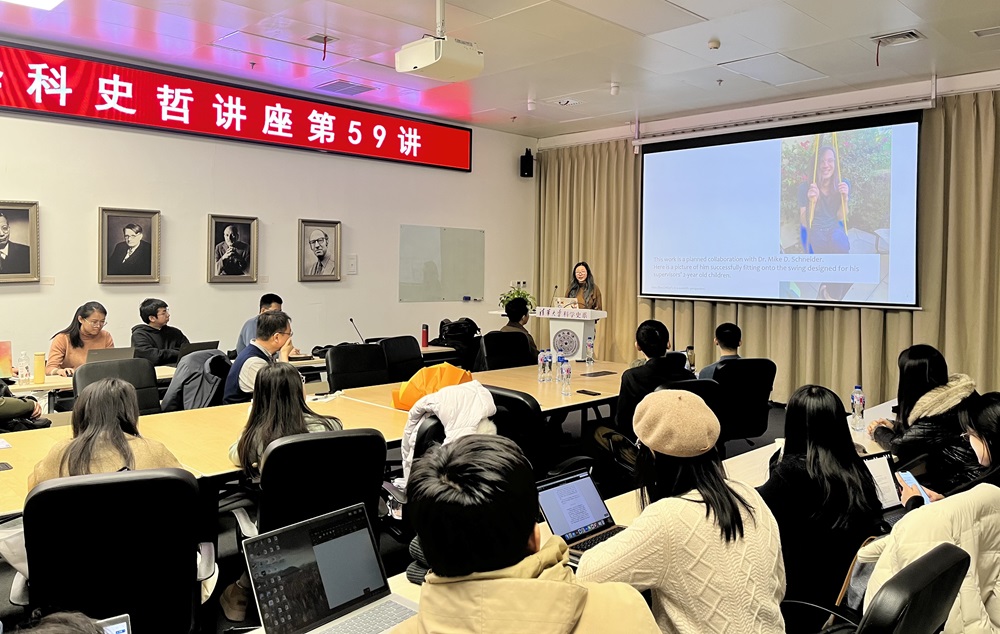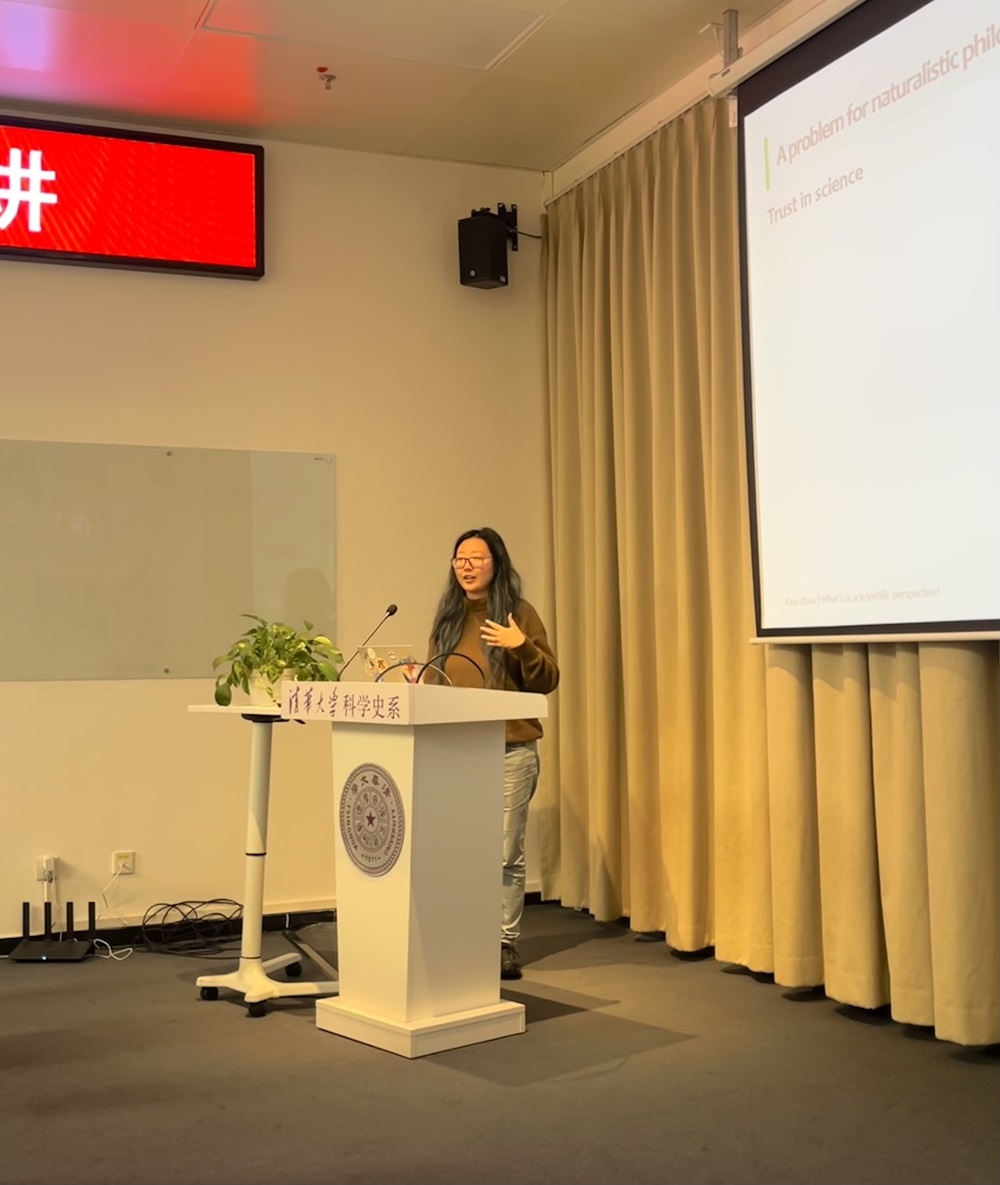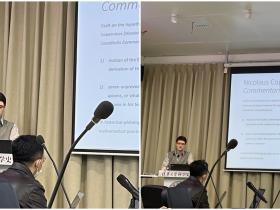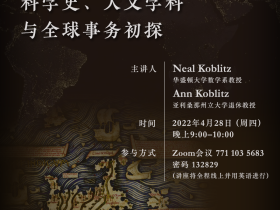
On the afternoon of December 22, 2023, the 59th session of the Tsinghua Lectures on the History and Philosophy of Science and Technology was successfully held. The event featured a lecture titled “What is in a Scientific Perspective?”presented by Dr. Kino Zhao, Assistant Professor of Philosophy at Simon Fraser University (SFU), Canada. The lecture was chaired by Associate Professor Jiang Che, Deputy Director of the Department of the History of Science at Tsinghua University.

Professor Jiang Che introduced Dr. Kino Zhao’s academic background and research focus. As a distinguished alumna of the globally renowned Department of Logic and Philosophy of Science at the University of California, Irvine, Dr. Zhao specializes in philosophy of statistics, philosophy of social sciences, philosophy of machine learning, logic, and epistemology.
The content of Assistant Professor Kino Zhao's lecture focuses on the opposition between scientific realism and pluralism within the philosophy of science. She proposes a new form of perspectivism to attempt to reconcile this opposition. Existing perspectivism equates perspectives with models that have certain modeling limitations, and the examples it uses primarily come from climate science and physics. The degree of these limitations raises new questions: on the one hand, overly strict limitations may fail to support scientific realism, while, on the other hand, less stringent limitations may not be sufficient to confirm pluralism. Assistant Professor Kino Zhao proposes a new form of perspectivism. Its core idea is no longer to equate perspectives with models, but to define a perspective as the maintenance of a signal after noise is disregarded. Based on the signal-noise perspective, maintaining pluralism for the same information is feasible.
The Q&A session explored applications of neo-perspectivism across disciplines like formal sciences, astrology, and economics. Questions centered on establishing criteria for distinguishing signals from noise. In response, Dr. Zhao emphasized the epistemic distinction between models—as context-specific qualitative representations—and perspectives as cognitive schemata for problem-solving spaces.
Author:Dong Huanfang





